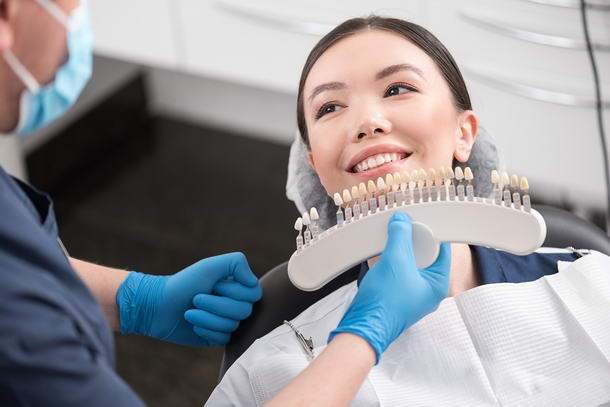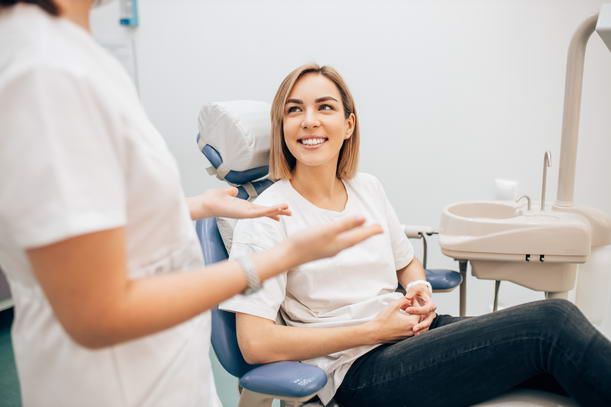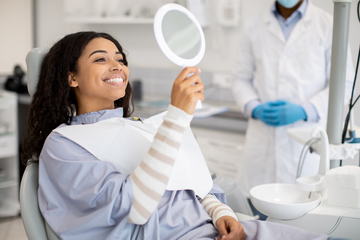To Purchase Minocin Online Visit Our Pharmacy ↓

Shedding Light on Minocin's Role in Fighting Inflammatory Diseases
As these technologies mature, they pave the way towards a future where antibiotic stewardship and innovation go hand in hand, ensuring drugs like Minocin remain potent against the threat of superbugs. Ultimately, the choice between Minocin and traditional antibiotics depends on the specific infection being treated and the individual patient's circumstances. However, like any medication, Minocin may have potential side effects, which should be carefully monitored and addressed by healthcare professionals. These medications have evolved significantly since the discovery of penicillin by Alexander Fleming in 1928. It does so by binding to the bacterial ribosomes, which are responsible for the production of essential proteins necessary for bacterial survival and growth. Careful consideration of these precautions and contraindications is crucial to ensure safe and effective usage of Minocin. By focusing on these broader implications, scientists are laying the groundwork for more nuanced treatment regimens.
What Is Minocin and How It Works
By penetrating the skin’s oil glands, Minocin reduces the bacterial colonization that leads to inflammation and acne lesions. By taking these proactive steps, patients bolster the fight against resistance, ensuring that powerful antibiotics like Minocin remain effective for those who truly need them. In addition to its antibacterial action, Minocin modulates the body's immune response. Researchers are harnessing the power of biotechnology to enhance the delivery mechanisms of Minocin, targeting the medication directly to affected skin areas whilst minimizing systemic exposure and potential side effects. By infiltrating the body's affected areas, it systematically disrupts the life cycle of Propionibacterium acnes, the bacteria partially responsible for inflamed breakouts. Understanding the science behind Minocin can be fascinating; it not only tackles the surface issues but also delves deeper to resolve underlying bacterial infections. On the other hand, traditional antibiotics still play a crucial role in treating various infections, including urinary tract infections, pneumonia, and skin infections.
Minocin: Unleashing the Power of Targeted Antibacterial Therapy
Personal accounts from individuals who have included Minocin in their acne treatment regimen provide insightful perspectives on its real-world effectiveness. By inhibiting the growth and replication of these bacteria, Minocin helps to eliminate the infection and improve patient outcomes. Minocin, a potent antibiotic, plays a crucial role in combatting Methicillin-resistant Staphylococcus aureus (MRSA). Additionally, Minocin has been found to be effective in combating respiratory tract infections, urinary tract infections, and sexually transmitted infections caused by susceptible bacteria. Minocin, a brand name for minocycline, is an antibiotic in the tetracycline class used to treat various infections, including acne. Cutting-edge research has significantly enhanced our understanding of Minocin's role in acne management, underscoring its potential against resistant bacterial strains. This means fewer trips to the drive-thru for multiple prescriptions.
The Science Behind Minocin's Acne-fighting Powers
However, their effectiveness can vary depending on the specific bacteria causing the infection and the presence of antibiotic resistance. Despite these considerations, the efficacy of Minocin treatment in combating MRSA highlights its importance in the fight against this challenging infection. However, the extensive use of traditional antibiotics over the years has led to the emergence of antibiotic-resistant bacteria, making them less effective in certain cases. Furthermore, research suggests that Minocin may have additional mechanisms of action beyond its direct effects on bacterial ribosomes. Start by adhering strictly to the "Sig" provided by your healthcare provider. acnes, the bacteria most commonly implicated in acne, makes it a valuable component of comprehensive acne management strategies. While over-the-counter treatments such as benzoyl peroxide and salicylic acid work on the skin's surface to reduce inflammation and clear clogged pores, Minocin operates systemically, attacking acne at its biological root by inhibiting the growth of bacteria deep within the skin.
Unraveling the Molecular Interactions of Minocin in the Human Body
MRSA infections can occur both in healthcare settings and in the community. It is often compared to other oral antibiotics like doxycycline and tetracycline, but Minocin is sometimes favored for its superior absorption and longer half-life, which may improve patient compliance and reduce the frequency of doses needed for efficacy. Always consult with your healthcare provider or pharmacist before starting Minocin to ensure its safe use. However, it is essential to note that the benefits of Minocin treatment often outweigh the risks, and healthcare professionals will carefully assess each patient's suitability for treatment with this antibiotic. As researchers continue to explore the full extent of Minocin's capabilities, the future holds promising prospects for the development of novel therapies that can improve the lives of patients worldwide. Poor hygiene practices, crowded living conditions, and open wounds increase the risk of MRSA transmission. Over the years, traditional antibiotics have played a crucial role in combating bacterial infections and saving countless lives.
The Rise of Traditional Antibiotics: Are They Still Effective?
One area where Minocin shows particular promise is in the field of oncology. Staying hydrated and maintaining a balanced diet rich in anti-inflammatory foods, such as fruits and vegetables, may also contribute to better skin health. Such measures help maintain Minocin's role as a viable treatment option and preserve its potency, delaying the onset of resistance and safeguarding its usefulness for future generations. Minocin, a powerful antibiotic, plays a crucial role in combating Methicillin-resistant Staphylococcus aureus (MRSA) infections. Some patients may experience mild symptoms such as nausea, dizziness, or headaches, which usually subside as the body adjusts to the medication. Specifically, Minocin targets bacterial ribosomes, thereby preventing the formation of peptide bonds necessary for protein synthesis. Consulting with a healthcare professional is crucial to determine the most appropriate treatment plan for each case.
The Impact of Cutting-edge Research on Minocin Efficacy
Her confidence soared, making her reluctant to join a pharm party for once, as she felt great without swapping any other meds. The judicious use of Minocin, like any antibiotic, is critical in maintaining its efficacy and curbing the development of resistance. Daily use of a gentle cleanser and moisturizer suitable for sensitive skin can prevent irritation. Consuming certain foods can either hinder or enhance the absorption of the drug, making it vital to understand which foods to include and which to avoid in your diet. Its enhanced solubility in lipids allows Minocin to cross cellular membranes more easily than other tetracyclines, leading to higher concentrations within cells and thus greater therapeutic effectiveness. Its potency against P. It is important to note that the occurrence of side effects may vary from person to person and it is recommended to consult a healthcare professional if any unusual symptoms arise while taking Minocin.
Minocin: a Unique Approach to Treating Acne Effectively
Minocin works on the cellular level to target harmful bacterial infections. Traditional antibiotics have also been modified and combined to maximize their effectiveness. When taking minocin, diet plays a crucial role in its effectiveness. Similarly, the development of macrolides like erythromycin and azithromycin offered an alternative for patients who were allergic to penicillin. Minocin is not generally recommended during pregnancy due to several concerns. Users should discuss their medical history with a healthcare provider to ascertain their risk for adverse effects, and any concerning symptoms should be promptly communicated to a medical professional to ensure safe usage of Minocin. In tandem with biomedical innovations, there is an escalating emphasis on the integration of artificial intelligence and machine learning to accelerate drug discovery.
How Minocin Targets Bacterial Infections in the Body
Furthermore, it is essential to avoid taking Minocin alongside certain medications like oral contraceptives or antacids containing aluminum, calcium, or magnesium, as it can interfere with their absorption and reduce their effectiveness. Additionally, cutting-edge studies are focusing on the anti-inflammatory properties of Minocin, harnessing its potential to treat acne from both the bacterial and inflammatory fronts. Minocin's Unique Approach. Its chemical composition includes a complex set of molecular structures designed to effectively disrupt bacterial growth. The findings indicate that Minocin, due to its classification as a tetracycline antibiotic, can cross the placenta and may affect fetal development. The confluence of these actions, delivered effectively to the skin with systemic administration, is what underpins Minocin's high success rate in the management of acne, especially in cases resistant to standard treatments. Highly effective.
Potential Side Effects and How to Mitigate Them
One pivotal study involving 374 participants found that a 12-week course of Minocin led to significant reductions in inflammatory and non-inflammatory lesions, with over 50% of patients achieving clear or almost clear skin. Writing about Minocin's potential side effects can be quite eye-opening. Minocin, the brand name for the antibiotic minocycline, has recently garnered attention in the field of dermatology as an effective contender against acne vulgaris. It is important to note that these side effects are usually mild and resolve on their own without any intervention. Research has shed light on its potential to modulate inflammatory processes in the body. This unique mechanism sets Minocin apart from other antibiotics and contributes to its efficacy against a wide range of bacterial pathogens. By targeting protein synthesis, Minocin has shown efficacy against various types of common infections, including acne, respiratory tract infections, urinary tract infections, and sexually transmitted infections.













